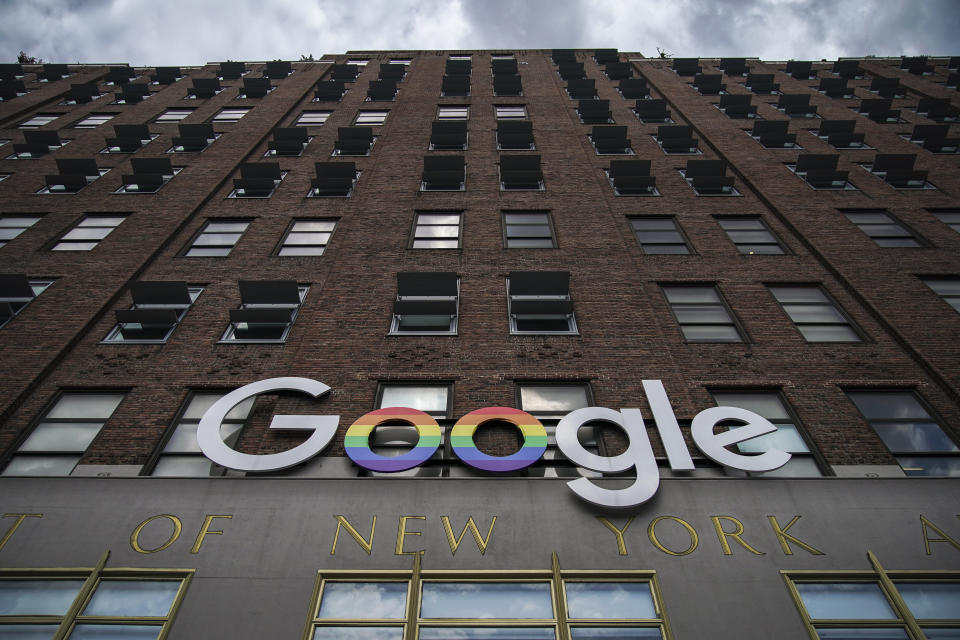Why Google has more to fear from antitrust regulators than Apple or Facebook

The U.S. government has indicated that it’s stepping up its antitrust scrutiny of America’s biggest tech giants — but Google parent Alphabet (GOOG, GOOGL) may have the most to fear from regulators.
Earlier this week, multiple reports emerged that the Department of Justice and the Federal Trade Commission had divvied up responsibility for handling investigations of big tech — with the DOJ taking on potential probes into Google and Apple (AAPL) and the FTC agreeing to handle any matters related to Facebook (FB), Amazon (AMZN). Congress is also launching a bipartisan investigation into competition in digital markets.
But Google’s wide-reaching influence — it has over 90% market share for search — and arguably questionable business practices in online search, advertising, and mobile puts it at particular risk with regulators, several legal experts say.
“We know Google is dominant in search, and we know that they've done certain things to keep their search engine [on top] and with search results, so we know there’s smoke there,” explains George Hay, a professor of law and economics at Cornell Law School.
‘Long-standing complaints’
Silicon Valley antitrust attorney Gary Reback, best known for leading the efforts that resulted in the federal lawsuit against Microsoft (MSFT) in the late 1990s, says he has worked with several clients who have complained about Google’s business practices over the years.
“There are long-standing complaints, most of which are generally considered meritorious and well-founded and supported by, you know, the [FTC] staff’s investigation,” explains Reback.

Reback is referring to the FTC’s two-year investigation into Google that ended in 2013 in which the FTC ultimately decided Google had not violated antitrust statutes with its search engine. The FTC’s decision, as it turned out, was at odds with a 160-page staff report drafted by the FTC’s bureau of competition and partially obtained by The Wall Street Journal in 2015 through an open-records request. In the report, staffers concluded Google’s manipulation of search results to favor its services over rivals “resulted—and will result—in real harm to consumers and to innovation in the online search and advertising markets.” Ultimately, the FTC voted 5-0 not to bring a case against Google.
It’s unclear how the Justice Department’s investigation will differ from the FTC’s probe six years ago, but the Justice Department plans to explore Google’s practices in search, how the company maintains its dominant position, and whether those practices affect rivals that Google views as threats, according to a report from The Wall Street Journal, which cites several anonymous sources familiar with the matter.
Since Google’s founding in 1998, the company has become the No.1 search engine in the U.S. and most trafficked website in the world, according to web traffic tracking site Alexa. Its online advertising business dominated the U.S. online ads market with a 37.1% market share in 2018, according to eMarketer. Meanwhile, Google’s Android smartphone operating system remains far and away the most widely used OS in the world, cornering nearly 86% of the market, per IDC.
Google critics have argued over the years that the Mountain View, California, tech giant wields too much power as the largest search engine in the U.S. desktop and mobile. The company is also in possession of a huge trove of user data. Last October, for instance, Google said it would shut down its struggling Google+ social network following revelations that a software bug exposed the data of hundreds of thousands of users.
‘A thorough investigation of Google’

Although it’s speculation at this point what the consequences will be for Google, in particular, Herbert Hovenkamp, a professor at the University of Pennsylvania Law School and an expert on antitrust law, predicts the end result will stop well short of breaking up the online search giant. (Sen. Elizabeth Warren, one of the Democratic presidential candidates for 2020, has said if elected, her administration would move to break up Google, Amazon, and Facebook.)
“I think what's most likely to happen is not a call for a breakup but rather a thorough investigation of their [Google’s] contracts: their practices of buying, selling and advertising, and maybe an injunction against any kind of exclusivity provisions within those contracts,” Hovenkamp said.
If the Justice Department issues such an injunction, the consequences for Google could have significant — if unknown — consequences for Google, which derives the vast majority of its revenues from advertising. Google has thousands of contractual agreements in place with third-parties to maintain its advertising products.
“Those are not ‘breaking’ provisions, but they do have the potential to change the way a firm does business,” Hovenkamp said. “It would be a remedy that limits the extent to which they could enforce a contract that has been found to be anti-competitive, but it would not be a breakup.”
While U.S. antitrust regulators mull action against Google, Europe has already penalized the search-engine giant. In March, the European Commission fined Google $1.7 billion for blocking competitors in online search advertising (a fine that it’s appealing). And last year, Google also challenged a record-setting $5 billion fine for unfair business practices around Android, its popular mobile operating system.
Google declined to comment on reports of antitrust scrutiny in the U.S.
Follow Yahoo Finance on Twitter, Facebook, Instagram, Flipboard, SmartNews, LinkedIn,YouTube, and reddit.
More from JP:
